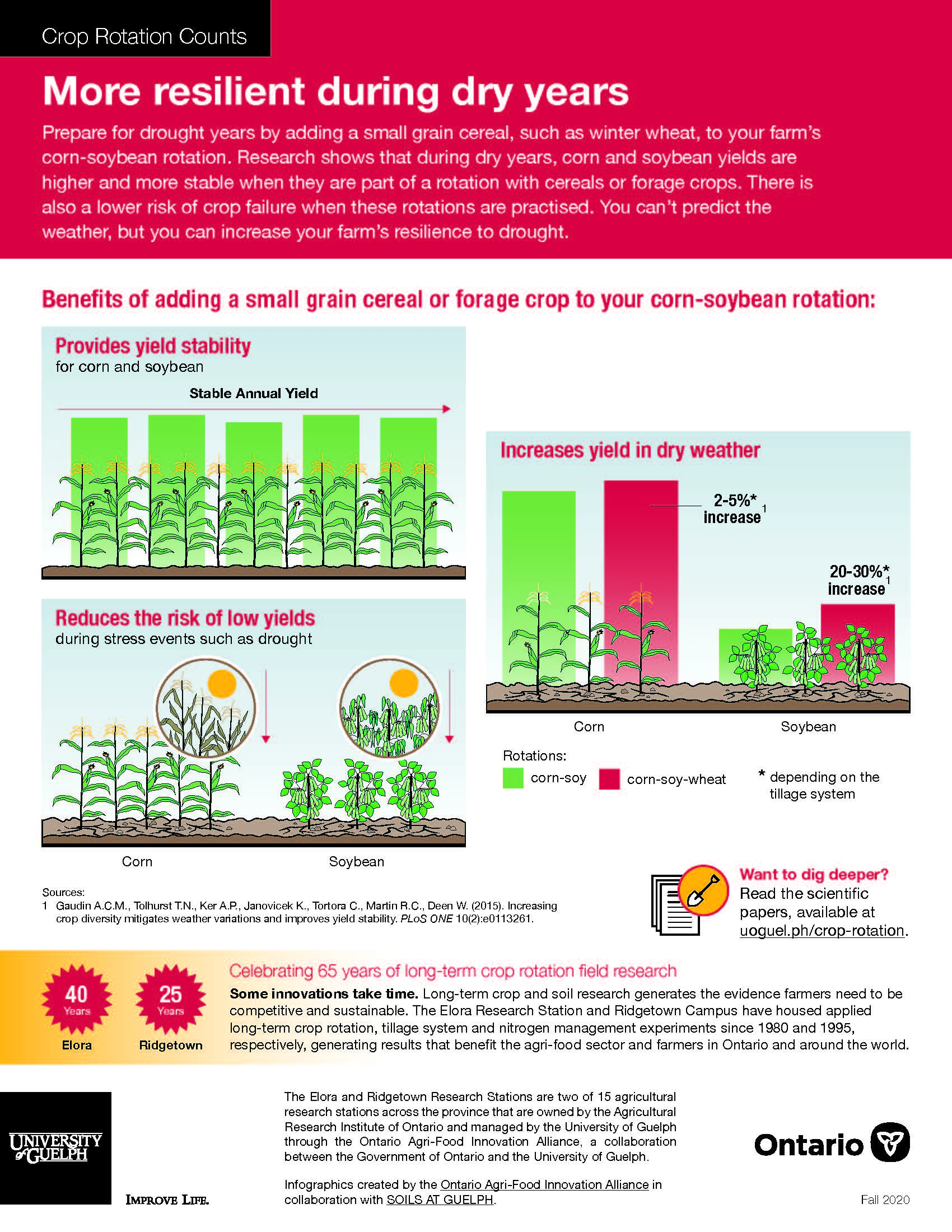Crop rotation counts: More resilient during drought years (text version)

Prepare for drought years by adding a small grain cereal, such as winter wheat, to your farm’s corn-soybean rotation. Research shows that during dry years, corn and soybean yields are higher and more stable when they are part of a rotation with cereals or forage crops. There is also a lower risk of crop failure when these rotations are practised. You can’t predict the weather, but you can increase your farm’s resilience to drought.
Benefits of adding a small grain cereal or forage crop to your corn-soybean rotation:
- Provides yield stability for corn and soybean (stable annual yield).
- Increases yield in dry weather: for a corn-soy-wheat rotation compared to corn-soy, increase is 2 to 5 per cent in corn; 20 to 30 per cent in soybean. Both ranges depend on the tillage system. See source 1.
- Reduces the risk of low yields in corn and soybean during stress events such as drought.
Sources
- Gaudin A.C.M., Tolhurst T.N., Ker A.P., Janovicek K., Tortora C., Martin R.C., Deen W. (2015). Increasing crop diversity mitigates weather variations and improves yield stability. PLoS ONE 10(2):e0113261.
Want to dig deeper?
Celebrating 65 years of long-term crop rotation field research
Some innovations take time. Long-term crop and soil research generates the evidence farmers need to be competitive and sustainable. The Elora Research Station and Ridgetown Campus have housed applied long-term crop rotation, tillage system and nitrogen management experiments since 1980 and 1995, Ridgetown respectively, generating results that benefit the agri-food sector and farmers in Ontario and around the world.
The Elora and Ridgetown Research Stations are two of 15 agricultural research stations across the province that are owned by the Agricultural Research Institute of Ontario and managed by the University of Guelph through the Ontario Agri-Food Innovation Alliance, a collaboration between the Government of Ontario and the University of Guelph. Infographics created by the Ontario Agri-Food Innovation Alliance in collaboration with SOILS AT GUELPH.